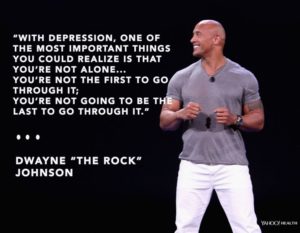
We live in changing and progressive times where the role of gender is becoming less rigid and the concept of “being a man” is constantly changing. The image of the Marlboro Man riding his horse down a desert or a New York attorney in a suit and tie running down fifth avenue only stopping to flirt with a woman in a red dress is becoming less and less relevant these days. The idea of a man being sensitive, open-minded, and not prone to the stereotypes of masculinity has become more widely accepted phenomenon recently, yet the amount of men pursuing therapy both for help and as a profession remains a huge issue….but why? I think before we discuss the why it’s important to
The Stats Don’t Lie
The statistics vary throughout the nation, but the one consistency in research is that the amount of men that seek therapy versus women is significantly less. Only around one-third of individuals in therapy throughout the United states are men. Though statistics report that around 14% of men in the US have some sort of mental health issue only 60% of depressed men go for treatment, while over 72% of women seek treatment. Additionally, nearly double the amount of women (9%) make use of outpatient mental health services while only 5% of men take advantage of this type of support.
Another contributing factor is the fact that significantly less men are entering the field of psychology. According to a New York Times article, men represent only 20% of all master’s degrees awarded in psychology, which is a significant drop off from 50% in the 1970s. When I think of my personal experience, I cannot recall a class or training in my career I have attended related to counseling or psychology that comprised of more than 10-20% men.
The Consequences
Suicide remains the 10th leading cause of death in this country. The rate of suicide is highest in middle-age white men, white males accounted for 69.67% of suicides in 2017, and men died 3.54 times more often than women. In addition to suicide and depression, there are a copious amount of untreated mental issues amongst men including substance use, sex addiction, depression, and PTSD. Furthermore, men begin using drugs at a younger age, are more likely to abuse alcohol and/or tobacco, and are more likely to engage in binge drinking.

So…Why Aren’t Men Seeking Therapy?
Our culture and society places a significant amount of pressure on men being perceived as strong and tough. A large portion of our country continues to advocate the message both directly and indirectly that men are to show emotions through anger and women through sadness, which contributes to a sense of shame for many when they go against the gender expectation.
As a child, I remember quite regularly hearing the expressions “big boys don’t cry” and “stop being such a girl” and this message affected me in very unhealthy ways even into my adult life. For many men, this continues to be a persistent issue. Whenever I ask a group full of both men and women what women are supposed to be I get many different answers. Yet, when I ask the same question about men the answer seems to ring throughout the room – don’t be perceived as weak. To admit one has an issue and to seek help around it is, in fact, courage and strength, yet many in our society still struggle with stigmatizing therapy and counseling as “for the crazies”. Anyone could benefit from therapy and the world would be a better place if men in therapy was a more widely accepted concept.
Another issue is the fact that many men are out of touch with their emotions. Depression often manifests as physical symptoms such as feeling constantly tired, apathy, loss of one’s hobbies, or illness and can be mistaken for physical illness instead of an underlying emotional issue. Many men that feel depressed might not realize it. They might have been taught to not show emotions at a young age, and so as an adult they don’t understand the depth of their issues or sadness. Suppressing tears and unwanted emotions one’s whole life can become the norm, which causes many men to not even know what is going on with them emotionally.
Breaking The Stigma
We don’t necessarily have the power to force someone to seek counseling. However, as more people speak up about mental health and illness among men, more men will hopefully gain the courage to obtain the help they deserve. The most important step is to let others know that there’s no shame in getting help. Many men fear that seeking counseling will make others see them as weak or perceive them differently. In my experience, counseling and investing in oneself is seen by many as emasculating and helps to heal our relationships with ourselves and others.

If you are ready to take the next step and receive the support you deserve please click here to connect with one of our therapists. We have locations in both North Dallas (near Richardson, Carrollton, and Addison) and Grapevine (near Southlake, Colleyville, Euless, and Bedford).
About the Author
Nick Overbeck is both a Licensed Professional Counselor and Licensed Chemical Dependency Counselor. Nick has nearly a decade of experience in mental health including college counseling, trauma informed treatment, career counseling, suicide prevention, crisis intervention, addiction treatment, promoting mental health in working professionals, and working with loved ones of those affected by addiction and/or mental illness.
